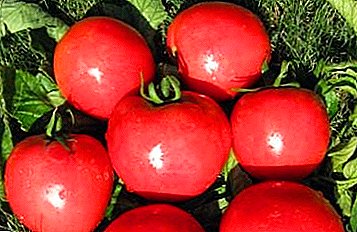 Many novice poultry farmers ask questions about the benefits and dangers of salty food for their wards.
Many novice poultry farmers ask questions about the benefits and dangers of salty food for their wards.
Since the health of a chicken largely depends on its diet, in this article we will try to understand this issue.
The value of salt in the diet of chickens
Chemically, salt is a tandem of chlorine and sodium.  Both elements play an important role in the development and operation of the organism of mammals and birds, exhibiting the following properties:
Both elements play an important role in the development and operation of the organism of mammals and birds, exhibiting the following properties:
- normalize the water balance;
- regulate water-salt metabolism;
- improve liver function;
- transport oxygen through the blood vessels;
- improve the conductivity of nerve impulses;
- suppress pathogenic microflora of the stomach and intestines;
- participate in the formation of bone tissue, muscle, lymph cells, extracellular fluid;
- maintain the health of the skin and feather cover.
Important! With a lack of elements in the body among chickens and adult specimens can begin cannibalism. In the desire to taste the salty blood of the bird will begin to peck each other.
Is it possible to give salty foods
As for salty foods, for example, fat, pickled or salted cucumbers, smoked or salted fish, these products are strictly prohibited to chickens. In this case, it is impossible to unequivocally control the dose of salt that the chicken gnaws.  All this can be given raw or boiled. Salt is not the main food, but an additive to it.
All this can be given raw or boiled. Salt is not the main food, but an additive to it.
Find out what should be the diet of chickens, what to feed and how to make feed for laying hens on your own, how to feed chickens in winter for egg production, how much feed a day is needed for a laying chicken. And is it possible to give the hens oats, potatoes, garlic, fish, cabbage, beets.
When and in what quantity give supplement
In the summer, when free-range, the bird receives the necessary minerals and vitamins, eating greens. In addition, fresh vegetables and fruits are added to the feed. There is no need for salt if the bird is raised exclusively on feed mixtures: there is a balance of all the substances it needs.
With cellular content and in the winter period, an additive is necessary along with mash beans or porridges. In the diet, the supplement is administered from about the twentieth day of the chicken’s life, starting at 0.05 g per day. At two months of age, the rate is increased to 0.1 g, 0.5 g is the norm of an adult individual.
Did you know? During the invasion of Iraq, American soldiers, fearing a sudden chemical attack, carried chickens in trucks. The fact is that the birds have a rather weak breathing system, when attacking, their death would be instant, and the soldiers would have time to put on protection.
Consequences of overdose
Excess product provokes a strong thirst, which adversely affects the health of chickens, especially layers.  Overdose in birds has the following symptoms:
Overdose in birds has the following symptoms:
- redness or blue skin;
- vomiting;
- loss of appetite;
- anxiety;
- dyspnea;
- loss of coordination;
- convulsions.
Important! First aid is to drink plenty of liquids, in severe cases you should contact your veterinarian.
To summarize: birds need salt, and give it to. However, it is given only as an additive, salty products from our table are contraindicated.












